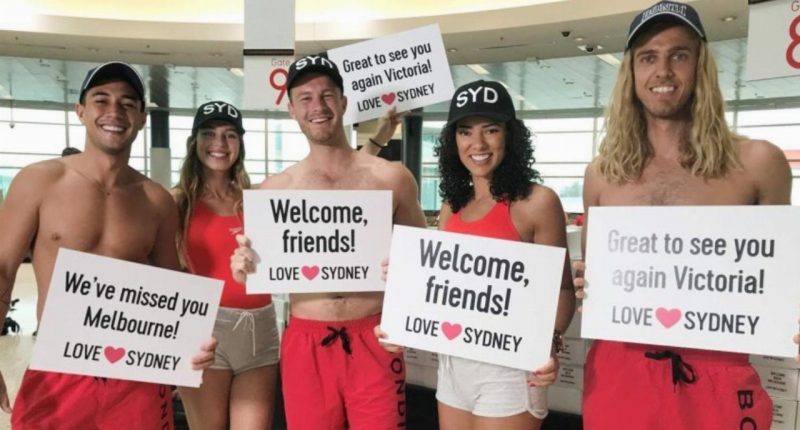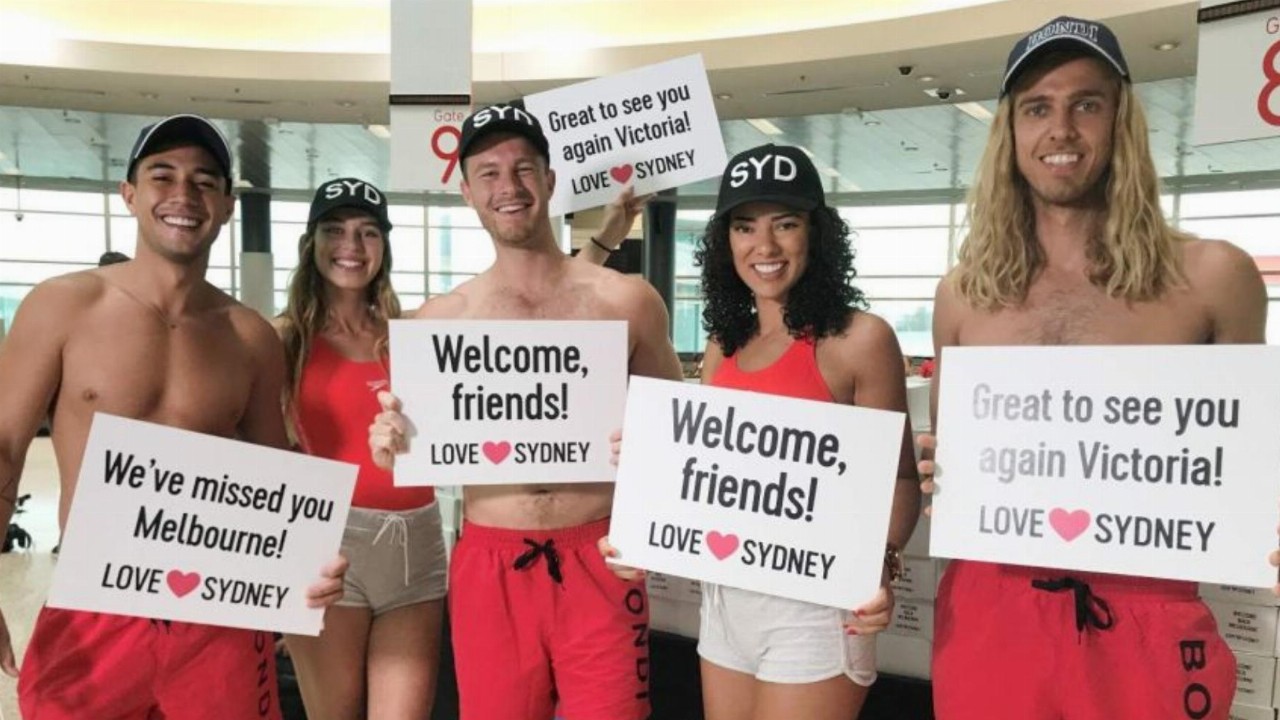- The border between NSW and Victoria has been fully dropped for the first time in four months after both states recorded a run of no new COVID-19 cases
- The travel restrictions between the two states were dismantled at midnight, allowing free movement for the first time since July
- Qantas (QAN), Jetstar and Virgin have begun scheduling extra flights between Melbourne and Sydney to keep up with the demand
- NSW first closed its border to Victorian residents amid a deadly second wave of COVID-19 infections
- After a lengthy lockdown, Victoria is now in the clear and hasn’t recorded after 23 days of no locally acquired cases
- Victorians have also been advised they will no longer be legally required to wear a mask when outside, but the practice is still being encouraged
Sydney and Melbourne are connected once more after the hard border between the two states was dropped for the first time in four months.
It’s a significant milestone for both states, as it allows free movement between the areas for the first time in 138 days.
Closure & reopening
NSW first closed its border to Victorian residents amid a deadly second wave of COVID-19 infections in July.
Tens of thousands of police and ADF members were posted at 64 local checkpoints across the border, checking traveller’s exemptions.
But after months of disruptions, all of the border restrictions were dropped at midnight last night — making NSW the first Australian state to reopen fully.
The change in restrictions comes after Sydney recorded a 16 day run of no new cases, while Melbourne recorded 23 consecuitve days of no locally acquired COVID-19 cases.
Flights resume with extra safety measures
Australian airlines Qantas (QAN), Jetstar and Virgin have all added extra flights to their schedules following the reopening overnight.
At the height of the pandemic, the popular route was only being serviced by one flight a day, well down on its previous average.
But since the restriction eased, Qantas said it had sold 25,000 tickets and was expecting further demand as the Christmas period approaches.
Speaking on the increase in available flights, Qantas CEO Alan Joyce told Nine plenty of precautions had been put in place to keep travellers safe.
“We have hospital-grade filters that filter out COVID-19. The air is taken out 20 times and that is five times an hour,” he explained.
“The whole process airlines have put into place with cleaning aircraft – giving people masks and sanitisers, we are changing the way people board the aircraft, changing the way lounges operate — has made it safer,” Alan added.
Passengers are being encouraged to wear masks when travelling, however its no longer mandatory for those in Victoria.
The State Government announced at the weekend that residents no longer legally have to wear masks when going outside.
“If you go to Bunnings and you are inside the store, you are wearing a mask. If you are in the car park, you do not have to wear your mask,” Premier Daniel Andrews said.
“But if you are queueing up for a sausage, and you are with other people, and you are simply not keeping a distance — you are part of a crowd, you need to put the mask on,” he explained.







